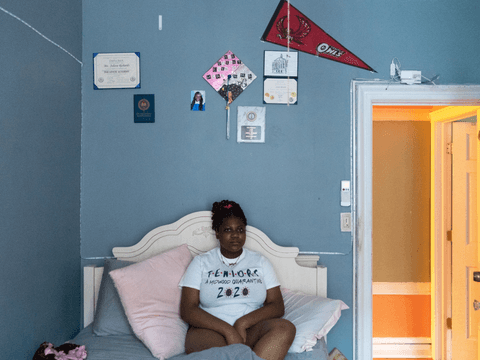
Coming of Age, Paused
New York City, USA
Essays by Janine di Giovanni
For 18-year-old Julissa, coming of age in Brooklyn, New York, during the pandemic signaled a loss of her rites of passage into adulthood. Schools were closed, which meant she didn’t see friends, attend senior prom or have a traditional graduation ceremony. Her excitement at finishing school and going to college was diminished.
One week into New York City’s lockdown, Julissa’s mother, Elaine, and her father, Carlton, fell ill with COVID-19. For Julissa, fear became entwined with daily life.
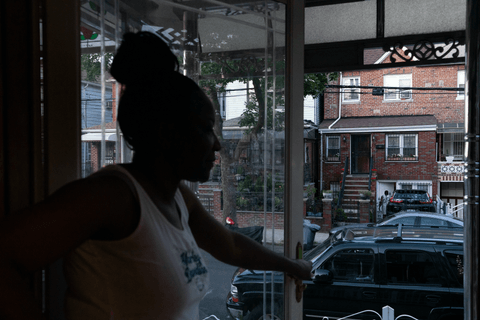
In the early days of the pandemic, when little was known of the virus, Julissa had to experience both of her parents falling ill. Carlton contracted the virus first. Initially, it seemed no worse than the regular flu. But then her mother Elaine, fell ill with chills and weakness, and found herself bedridden for days. On the 14th day of her illness, she went to her window to see an ambulance taking her next-door neighbour away, dead from COVID-19.
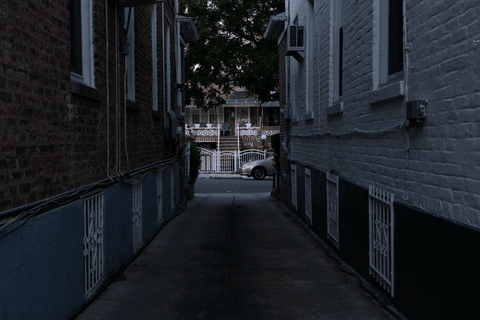
The virus, up close and personal, brought a deep and unknown fear into the family’s home and community. “I was afraid to go outside for months,” Elaine says.
“I didn't even go on my back step because I'm thinking it's going to kill all of us. We can't go outside. I have to stay inside.”
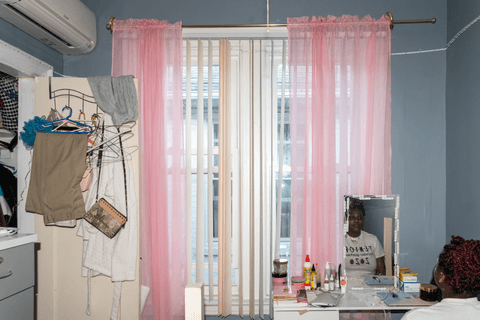
Heavy with the emotional trauma of watching her parents fall ill and worried they would contract the virus again, Julissa frequently shut herself in her room, lights off, sitting on the floor, teeming with anxiety. “I’m not used to seeing my parents like that … That was really hard for me,” she says. “At the deepest point, I just felt like, [my depression] was going to last forever.”
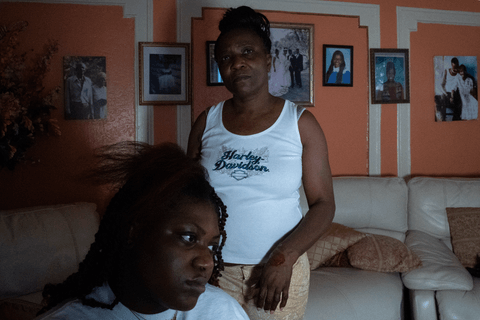
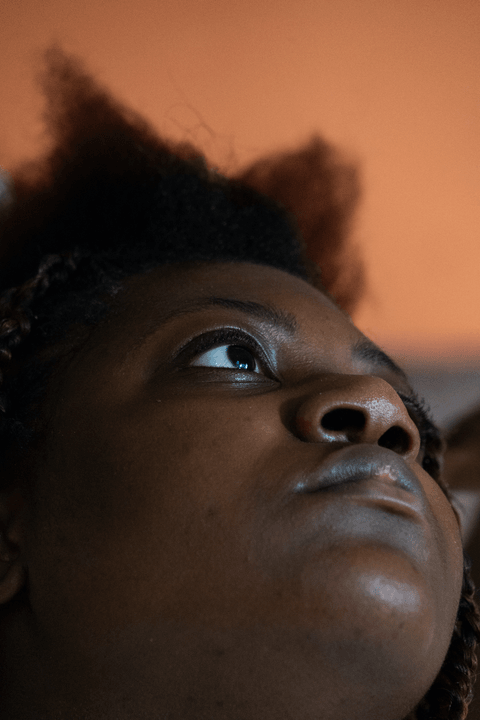
Julissa started going to a therapist to discuss the emotional and the mental toll the pandemic was taking on her. “I was stressing about everything. I felt the physical toll it was taking on my body. I was dealing with COVID-19, I was dealing with racism, I was dealing with going off to college and starting the beginning of my adulthood and being on my own for a little bit,” Julissa says. “As a young person, and someone [who] graduated that year, it almost felt like nobody cared about what I was going through.”
Julissa left for college in August 2020, but quickly returned to Brooklyn when classes went fully online.
“I felt like I was making [the year] harder, because now [my parents] are going to have to pay to send me to school and get a degree. I felt like I was putting more hardship on them by doing that.”
Julissa offered to change schools to lessen the financial burden on her parents, but they insisted she attend her top school regardless of finances.
Elaine’s business has suffered during the pandemic, and government support has not yet arrived. Some of her employees cannot come to work during the week because they have children at home. Elaine has put out advertisements for jobs at the salon, but she cannot get anyone to work.
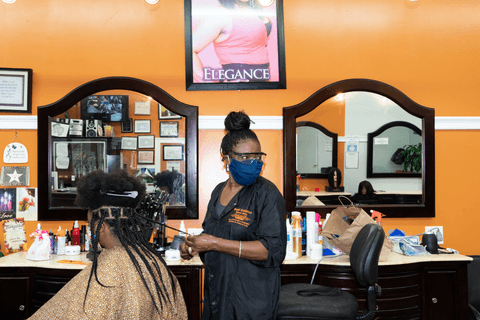
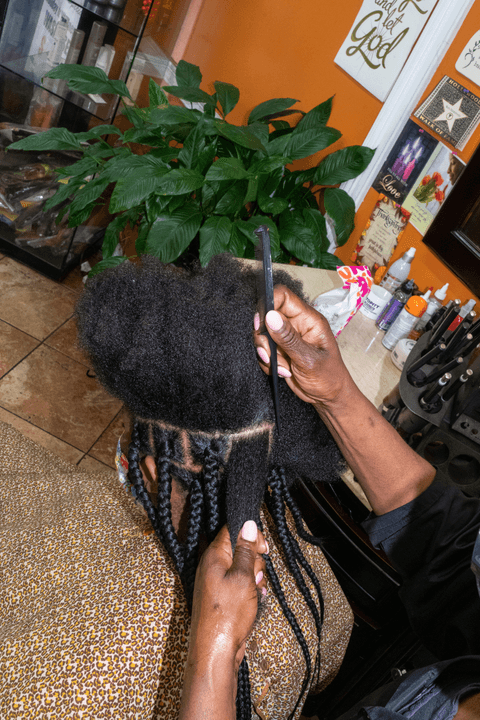
“We’re trying to get through the financial toll that it took on us,” Elaine says.
To supplement her income, Elaine sells jewelry on Facebook Live with the help of her daughter Jelean.
Julissa says she has become better at processing her anxiety and communicating her emotions through seeing a counselor. “One good thing that came out of [the pandemic] was that the world literally stopped. I'm forced to deal with my anxiety and depression head on and learn things about myself,” Julissa says.
“Even though it definitely took a negative toll on me and my family and everybody around us, I was still able to grow.”
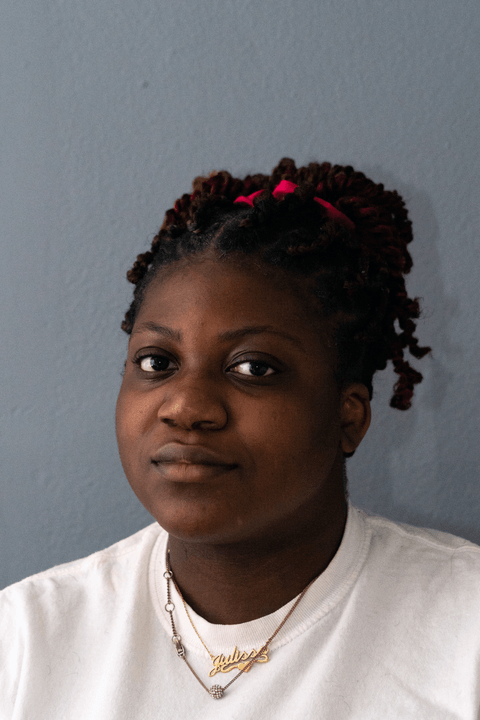
Elaine echoes her daughter’s quest for growth. “I look at COVID and say this should be a learning experience for a lot of us. We should change our lives for the better,” she says. “I see neighbours helping neighbours … We basically call and check up on each other more than we usually do. That’s for sure. That’s positive.” But Elaine also admits that the world after COVID-19 may not be the same world that existed before the pandemic.
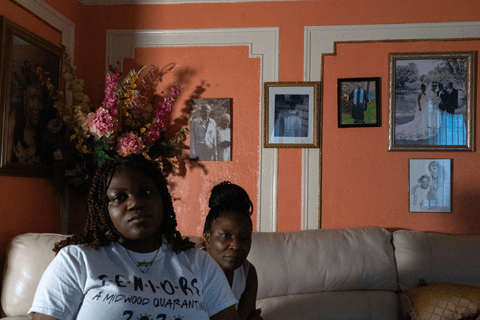
“People are locked in the house for a year. So when they come out, they’re not going to come out the same person they were before.”
About UNICEF’s work for every child
This story has been produced in collaboration and partnership with the Arthur Ashe Institute for Urban Health. The Institute connects vulnerable communities across Brooklyn, New York to the information, tools and resources they need to make informed health decisions and trains parents, caregivers, and youth to support the emotional wellbeing of children and build resiliency. UNICEF and UNICEF USA thank the Institute for their partnership, and Julissa and Elaine for trusting us with their stories.